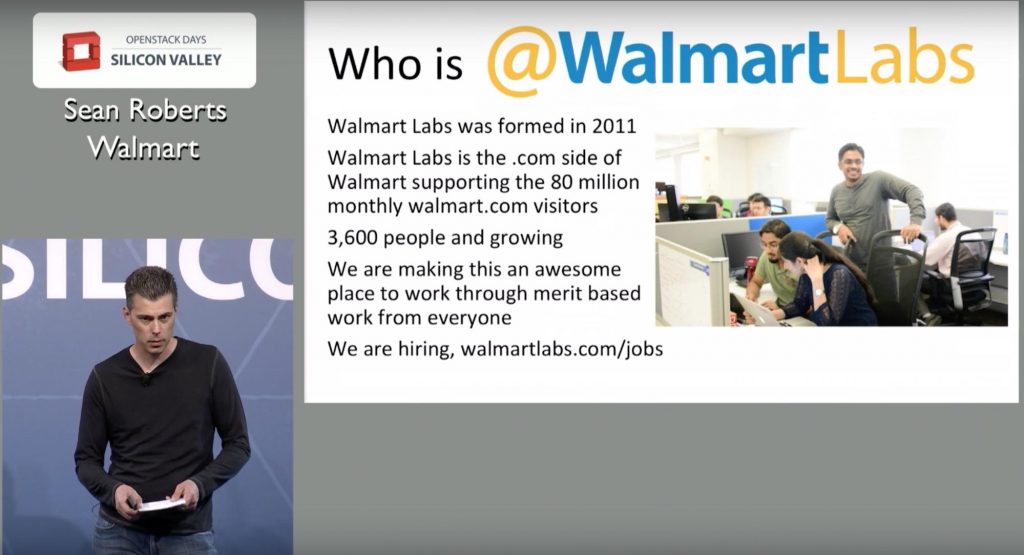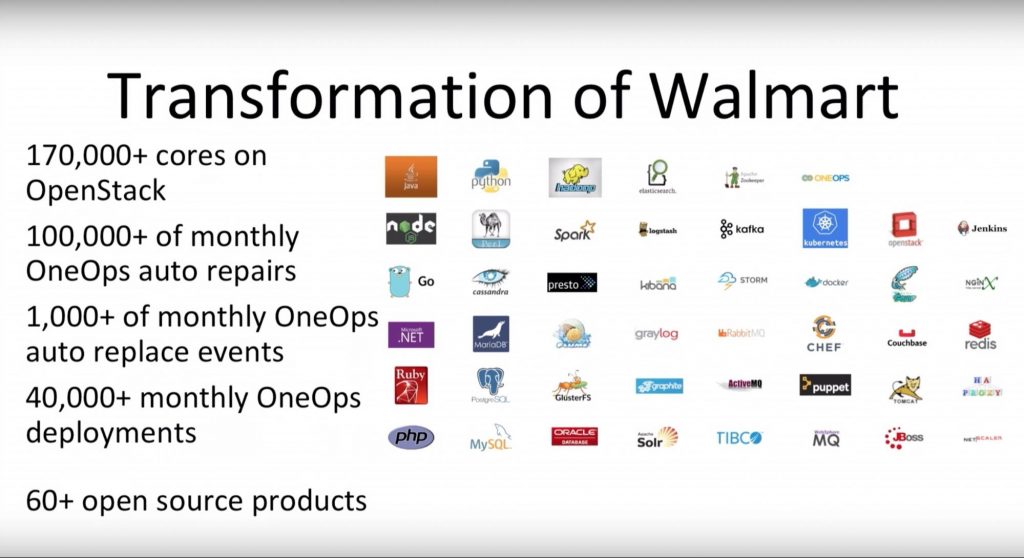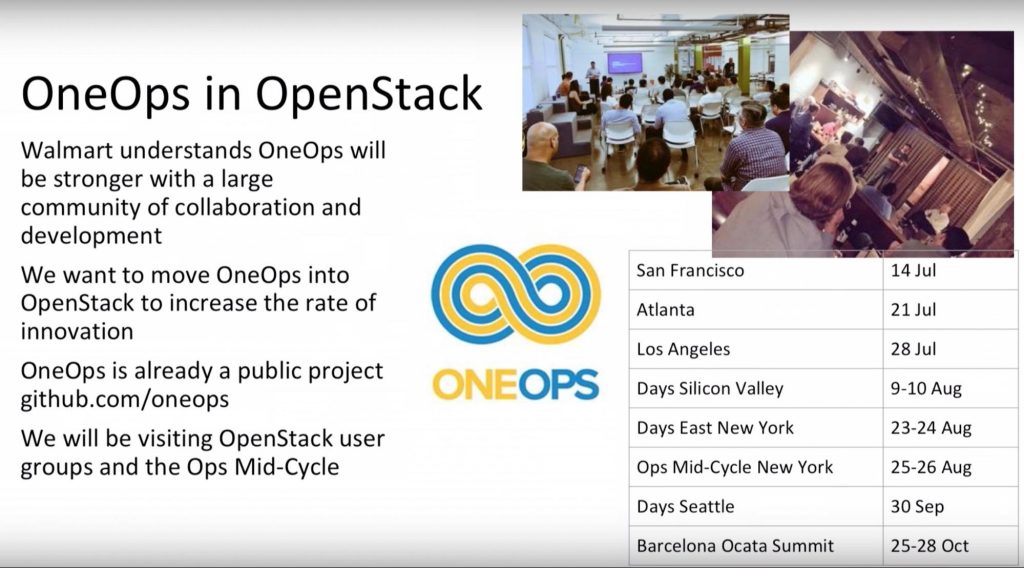You probably know that Wal-Mart has 11,000 stores in 28 countries around the world. Helping the massive retailer sell everything from bananas to yarn is a smaller team dedicated to agile development.
WalmartLabs was founded in 2011 to power the company’s 80 million monthly walmart.com visitors. WalmartLabs employs 3,600 people and continues to grow with an agile software development style and merit-based rewards. The move to open source, with OpenStack and Wal-Mart’s own OneOps cloud and application lifecycle management platform, is part of the draw for the people that work there. At the recent OpenStack Days Silicon Valley, Sean Roberts, director of technical management at WalmartLabs, shared what’s next for his team.
“At WalmartLabs, we are transforming the developer experience into the irresistible developer experience,” says Roberts, a OpenStack community member since 2012 who has also served as a board member and is currently an OpenStack Ambassador.
The team is boosting its monthly contributions to the OpenStack and open-source community as it only makes them (and the open-source community) stronger. As OpenStack becomes better and better as a result of its end users becoming contributors, Wal-Mart aims to follow that example.
The transformation of Wal-Mart into an agile technology company has brought big changes. The company has more than 170,000 cores running on OpenStack, with more than 100,000 monthly OneOps auto repairs, more than 1,000 monthly auto-replace events and more than 40,000 monthly OneOps deployments — all of this using more than 60 open source products.
“Open-source, while important, is only part of the picture,” said Roberts. “To be an agile tech company, you need to react quickly to changes.”
By using open-source technology like OpenStack and OneOps, Walmart has reduced the cost of running its business through agility, allowing it to make improvements to its developed software. They can then test the changes, collaborate with their peers around the changes, and then quickly deploy those changes in production.
“Walmart practices agile software development,” said Roberts. “With the open-source OneOps project being the continuous delivery of that process, we are able to make applications that heal themselves.”
In its development cycle, Walmart Labs creates a pattern of each application that represents how to deploy the application, failure scenarios and how to recover from those failures. This becomes an automated software development pipeline with built-in testing to ensure the new code doesn’t destroy the larger existing codebase before it gets deployed into production.
“You can be just as diligent about your result,” said Roberts. “Your production deployment will be just as agile as your software development.”
The WalmartLabs team is also exploring the idea of making OneOps an OpenStack project to bring its application lifecycle and orchestration features to OpenStack itself. The team will be visiting user groups to discuss user feedback.
Both Wal-Mart and OpenStack reward merit-based work, according to Roberts, which lets the best work rise to the top. WalmartLabs continues to contribute to the open-source communities it’s a part of to increase its rate of innovation in both its own OneOps project and the larger community of OpenStack developers. In addition to maintaining its public project repository at GitHub, the retail giant will also continue to visit OpenStack user groups in an attempt to give back to the community.
Photo: CC by NC on Flickr.
- Yes it blends: Vanilla Forums and private clouds - November 5, 2018
- How Red Hat and OpenShift navigate a hybrid cloud world - July 25, 2018
- Airship: Making life cycle management repeatable and predictable - July 17, 2018

)












